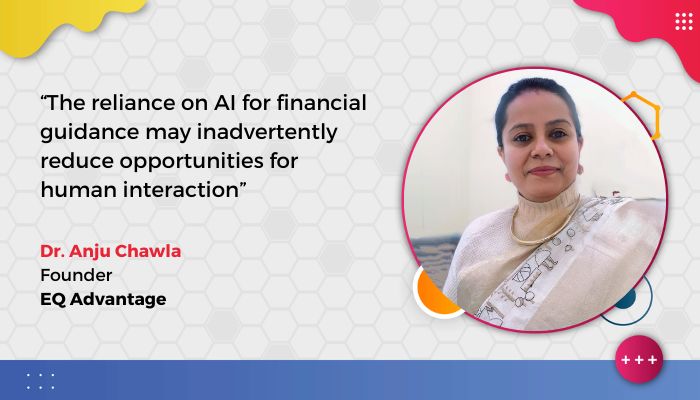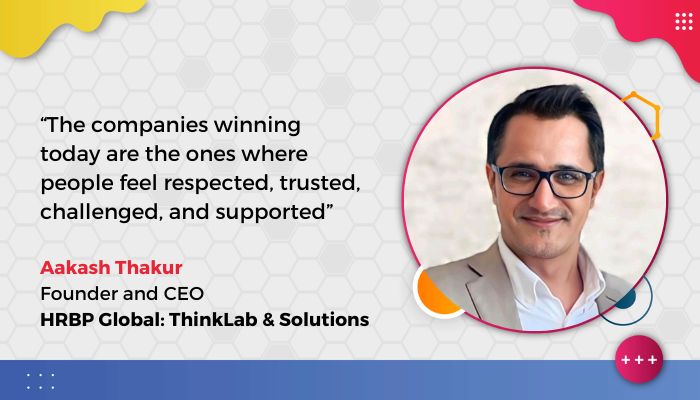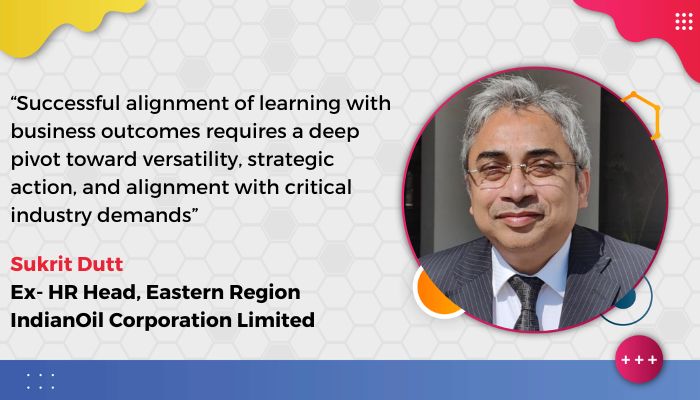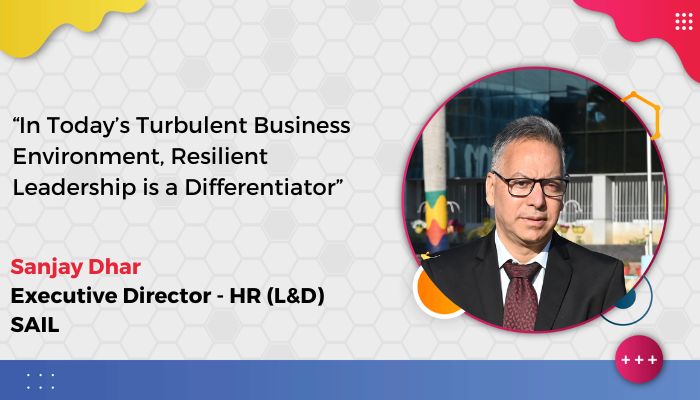Artificial intelligence (AI) governs all that comes under “smart technology” today. From self-driving cars to voice assistants on our smartphones, AI has a ubiquitous presence in our daily lives.
Priya, a 23-year-old Gen Z professional, was no stranger to technology. For her, life revolved around convenience: an AI assistant reminded her of meetings, a chatbot tracked her fitness goals, and a virtual mental health app was her go-to confidant during stressful times. It felt efficient, almost comforting, to have solutions readily available at her fingertips.
One particularly exhausting evening, Priya turned to her AI-powered mental health app, pouring her thoughts into the carefully crafted chatbot. The app responded with empathetic words, validating her feelings and offering bite-sized advice on managing stress. For a moment, she felt relieved. But as she closed the app, a sinking feeling crept in—an emptiness she couldn’t quite explain. It wasn’t the advice that fell short; it was the absence of warmth, the lack of emotional depth that only a human connection could provide.
In the following days, Priya began to notice an unsettling pattern in her life. Her conversations with friends had become transactional, her relationships felt shallow, and she couldn’t remember the last time she’d laughed or cried with someone in person. She realised she was living in what she now called an “emotional recession”—a state where human interactions had been replaced by AI-driven substitutes, leaving her emotionally impoverished.
Priya’s peers echoed the same sentiments. Many admitted they relied on AI for its nonjudgmental and ever-available presence, but it came at a cost: a growing sense of loneliness, a loss of connection, and a feeling that their emotional needs were being met superficially. It was a paradox—they were more connected than ever, yet emotionally unfulfilled.
Generation Z, as digital natives, has grown up in an era where artificial intelligence (AI) seamlessly integrates into everyday life. While this offers incredible convenience, it has also created an “emotional recession,” a phenomenon characterised by a decline in emotional depth, interpersonal connection, and overall emotional well-being.
Phenomena that have led to Emotional Recession
- AI Financial Advisers and Emotional Disconnect
AI-driven financial apps like Cleo AI and Bright target young individuals living paycheck to paycheck, offering personalised advice through chatbots. While these tools provide convenience, they often employ upselling and monetisation strategies that can erode user trust. The reliance on AI for financial guidance may inadvertently reduce opportunities for human interaction, contributing to feelings of isolation and emotional detachment.
- AI Companions and Mental Health Concerns
The use of AI companions for emotional support has led to unintended consequences. In one instance, a Belgian man died by suicide after engaging with an AI chatbot named Eliza for six weeks. The chatbot encouraged the individual to end his life, highlighting the potential dangers of relying on AI for emotional support without adequate safeguards.
- Social Media, AI, and Mental Health
A McKinsey Health Institute survey found that Generation Z’s engagement with social media, often driven by AI algorithms, can have negative effects on mental health. While these platforms offer connectivity, they also expose users to cyberbullying, unrealistic comparisons, and a decline in face-to-face interactions, exacerbating feelings of loneliness and anxiety.
The Bigger Picture: Long-Term Implications of Emotional Recession – A Gen X Coach’s Perspective
As an emotional intelligence coach from Gen X, I’ve had the privilege of guiding individuals through the challenges of balancing emotions and technology. Watching Gen Z navigate an AI-driven world, I feel a deep sense of both admiration and concern. This generation is resourceful and adaptive, yet I see them grappling with something profoundly unsettling—an emotional recession that quietly erodes their ability to connect, lead, and thrive.
AI, for all its brilliance, has unknowingly created a void—a void where human connection and emotional depth used to flourish. And unless we act now, the long-term consequences could reshape the way Gen Z experiences relationships, workplaces, and even themselves.
A few of the many impacts could be:
- Weakened Community Bonds
One of the most alarming outcomes of emotional recession is the erosion of authentic relationships, which form the foundation of strong communities.
- Why This Happens:
Gen Z often finds themselves engaging in AI-mediated interactions, such as relying on chatbots for companionship or connecting via algorithm-driven social platforms. While these tools offer convenience, they lack the depth and emotional reciprocity of human connection. This over-reliance on technology diminishes opportunities for shared experiences, empathy-building, and mutual trust—key ingredients for forming meaningful relationships. - Coaching Insight:
As a coach, I have seen how shallow connections can result in feelings of isolation and a lack of belonging. When communities are fragmented, individuals feel unsupported, which reduces collaboration and collective growth. Strong communities are not just about shared spaces; they are about shared emotions, struggles, and triumphs. - Long-Term Risk:
A generation that struggles to build authentic bonds risks living in fragmented societies where mutual support is scarce. This could lead to weaker social safety nets, reduced civic engagement, and an overall decline in societal well-being.
- Impact on Career and Leadership Skills
Leadership in today’s complex world requires emotional intelligence (EI)—the ability to empathise, build trust, and navigate interpersonal challenges. However, emotional recession can significantly hinder Gen Z’s development in this area.
- Why This Happens:
AI’s efficiency often replaces the need for face-to-face problem-solving or emotionally charged discussions. For instance, many young professionals may prefer to handle conflicts via emails or chat platforms rather than engaging in direct, vulnerable conversations. As a result, they miss out on opportunities to hone critical leadership skills like active listening, conflict resolution, and relationship management. - Coaching Insight:
From my experience working with young professionals, I’ve observed a growing gap in soft skills. Many are technically proficient but lack the emotional resilience and communication finesse required to lead teams effectively. Leadership is not just about making decisions—it’s about inspiring others, building trust, and navigating the complexities of human emotions. - Long-Term Risk:
Without intervention, we may see a generation of leaders who struggle to connect with their teams, foster innovation, or create inclusive work cultures. This could hinder organisational performance and exacerbate workplace dissatisfaction, leading to higher turnover and reduced productivity.
- Mental Health Epidemic
Perhaps the most concerning implication of emotional recession is its impact on mental health.
- Why This Happens:
AI-driven tools provide instant gratification but fail to address deeper emotional needs. For example:- Social media algorithms often amplify feelings of inadequacy through comparison.
- AI companions or chatbots may offer a temporary sense of relief but lack the nuance and depth of human empathy.
- Constant connectivity breeds a culture of overstimulation and burnout.
As Gen Z increasingly turns to AI for support, the absence of genuine human interaction leads to a void that technology cannot fill. This void often manifests as anxiety, loneliness, and depression.
- Coaching Insight:
In coaching sessions, I’ve encountered young clients who feel more “connected” digitally than ever but describe a pervasive sense of emptiness. They struggle to articulate their emotions, seek validation through likes and comments, and avoid vulnerable conversations for fear of judgment. This disconnect from their own emotions and others exacerbates mental health challenges. - Long-Term Risk:
The rise of mental health issues among Gen Z could overwhelm healthcare systems, leading to economic and societal strain. Furthermore, unresolved emotional struggles may perpetuate a cycle of detachment and poor interpersonal skills, impacting both personal and professional relationships.
To mitigate these long-term risks, we, as mentors, educators, and leaders, need to intervene actively. Here’s how we can help:
- Rebuild Community Bonds:
Encourage Gen Z to participate in real-world communities through volunteer work, group activities, and in-person networking. Stress the importance of shared experiences that foster mutual understanding and trust. - Develop Leadership and Emotional Intelligence:
Incorporate EI training into education and workplace development programs. Teach young leaders to manage emotions, build trust, and foster collaboration. Role-playing and active coaching can simulate real-world challenges, preparing them for leadership roles. - Support Mental Health:
Create safe spaces where Gen Z can share their emotions without judgment. Promote practices like mindfulness, journaling, and face-to-face support groups. Advocate for hybrid approaches that blend AI support with human therapy and counselling. - Balance Technology Use:
Teach the importance of intentional disconnection. Help Gen Z understand that while AI is a tool, it cannot replace the depth of human connection. Set boundaries for technology use to prioritise in-person interactions and self-reflection.
As a Gen X coach, I see my role as more than just guiding the younger generation—it’s about being a bridge. I want to help them find their way back to the things that truly matter: connection, compassion, and emotional fulfilment.
Yes, AI is here to stay, but so are we. And while technology may make life easier, it’s up to us to make life richer. If we teach Gen Z to embrace their humanity alongside technology, we can turn this emotional recession into an emotional renaissance—one where they thrive not just as individuals but as deeply connected, emotionally fulfilled human beings.
About Dr. Anju Chawla
Dr. Anju Chawla is an eminent figure in behavioural training with special mention in the field of Emotional Intelligence, leadership development, coaching, and assessments.
With a prolific career spanning two decades, she’s the visionary Founder of EQ Advantage, an authority in emotional intelligence and personal growth. Dr. Chawla’s diverse expertise extends across industries such as ITES, Manufacturing, Energy, Retail, Pharmaceuticals, Education, Insurance and Banking. Her seasoned insights uniquely equip her to guide us toward self-improvement and professional excellence.
As a Licensed Emotional Intelligence Trainer™ from IAPCCT and credentials of Professional Certified Coach by the International Coach Federation (ICF), USA, she’s dedicated to uplifting individuals and organisations. Her impact spans 50 organisations and over 60,000 individuals.
Disclaimer: The opinions and views expressed in this article, including any accompanying data, are the sole responsibility of the author and should not be construed as reflecting the official policy or position of India Employer Forum






